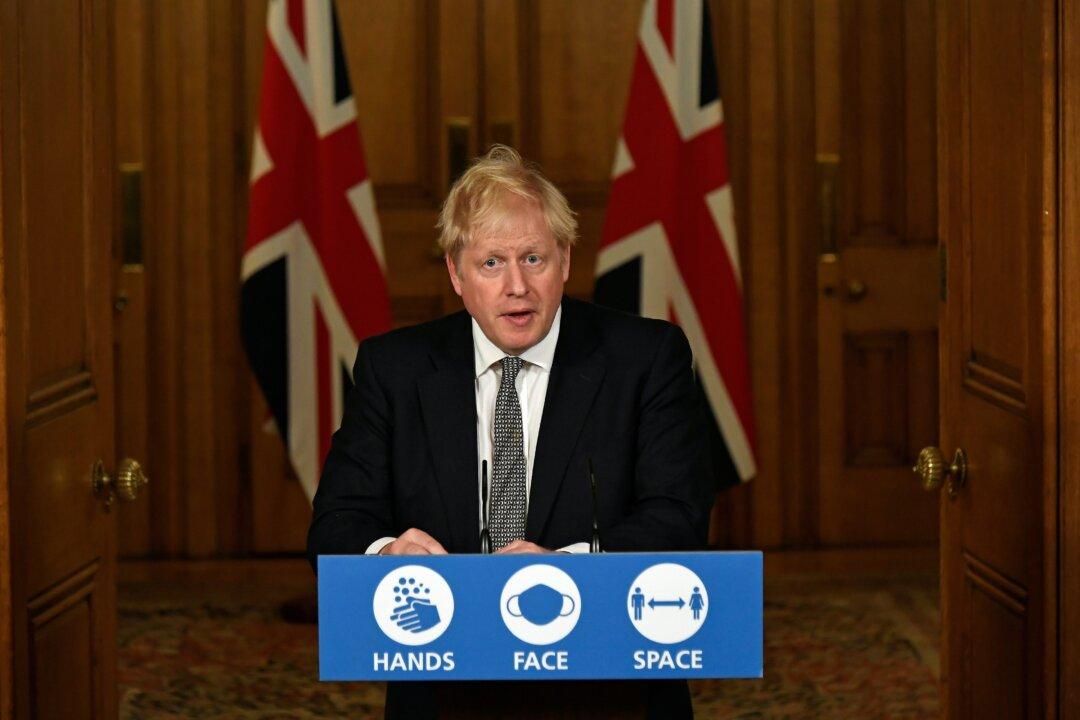Prime Minister Boris Johnson on Friday defended his decision to put 99 percent of the English population under higher tiers of restrictions after the country emerges from a national lockdown.
The government published the list of local restriction tiers by area on Thursday. All local authorities in England—except the Isle of Wight, Cornwall, and the Isles of Scilly—are placed under Tier 2 and Tier 3. Most of the areas were in Tier 1 before the current four-week national lockdown started.





